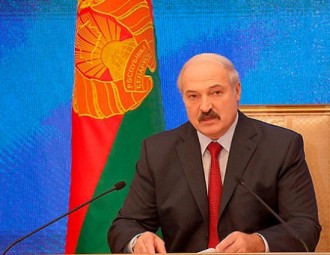Why not Belarus?

Belarus has shown signs of wanting to set aside its political differences with the EU and work towards an Association Agreement. Now it is up to the EU to act, writes Viktor Yengibaryan.
The Eastern Partnership program, launched in 2009, aims at integrating the Eastern European countries (Ukraine, Moldova and Belarus) and the South Caucasus countries (Armenia, Azerbaijan and Georgia) into European economic and political systems. The Association Agreement, which is the final prize to be awarded after long years of negotiations between each one of those countries and the EU, is seen by the Russian leadership as a security threat. After the Crimea annexation, the game changed and these agreements are now more about geopolitics and less about the economy. Nevertheless, the 1,500 pages of the agreement aimed predominantly at economic integration, rather than politics. The political chapters of the agreement focus mainly on democratic structures, the rule of law, good governance and human rights, but also cooperation among political parties, security issues, visa regime liberalisation, etc.
Traditionally, Moldova, Ukraine and Georgia are seen as the locomotives of the Eastern Partnership. Armenia was also one of the champions of European integration but, after the change of heart that led to it entering the Eurasian Economic Union, the country is having some difficulties in formulating its European agenda.
Belarus, a country geographically in the centre of Europe is traditionally seen as a ‘difficult’ partner for the European Union. As a strong and reliable ally of Russia, it is left with a fairly limited agenda for cooperation. Perhaps because it has developed its own political concepts of progress and societal organisation, it is often criticised in western democracies and, especially, by the EU. Yet, the country has a well-functioning economy, even though its foreign trade partners are mainly Russia, Ukraine and other CIS countries (the Commonwealth of former Soviet Union countries). Over the last couple of years, the country has shown signs of growing interest in Europe, mainly concerning trade and economic partnerships.
The economic partnership with the EU is purely about reconciling regulations, norms and standards. In order to be able to trade with the EU, the partner countries need to reform their legislation, institutions and norms. Surprisingly, Belarus has a quite high rating in the Rule of Law Index developed by the World Justice Project. Its rating is better than that of Moldova, Serbia or Albania, countries which have already signed Association Agreements with the EU and have far more privileges in their trade with the bloc. Belarus also holds a good position in the UN Human Development Index. Better than those of Romania and Bulgaria, member states of the European Union. The country is also a champion in education, healthcare and the fight against drugs and criminality.
The question is whether the European Union and Belarus can find a common language, overcome their political difficulties and begin constructive cooperation. It is obvious that both need each other and both are interested.
The upcoming Presidential Elections in Belarus, which will take place next month, could be a resetting moment, and a good opportunity to develop a new relationship based on mutual economic interests. Good will signs are needed from both sides in order for progress to be made. Belarus took the first step with the recent release of some political prisoners; the ball is now in the EU’s court.
-
03.01
-
07.10
-
22.09
-
17.08
-
12.08
-
30.09








































